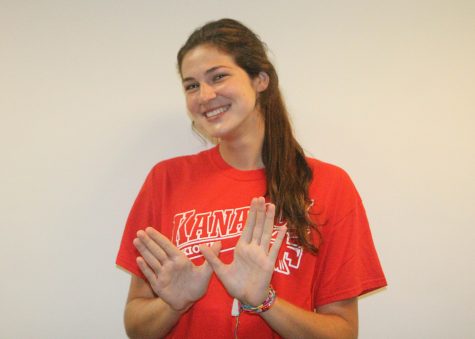Pursuing Light
Siblings celebrate Hindu festival Diwali, articulate the event’s cultural, personal significance
Across differing religions and cultures, the idea of light is an emblem for truth — a symbol of hope and goodness. Light, the illuminating adversary of darkness and of evil, shines brighter every passing autumn during Diwali, the biggest Hindu celebration.
Diwali, literally translating to mean “Festival of Lights,” is a bright, colorful five-day holiday highlighting themes such as the triumph of good over evil and the presence of hope in the world. It marks the start of the Hindu calendar. This year, Diwali was Oct. 28 through Nov. 1.
Senior Meghana Ammula and sophomore Ani Ammula have observed this holiday since birth, and Meghana said during the festival every year, she celebrates with many different traditions and customs.
“Diwali is spending a lot of time with family and performing rituals to god,” Meghana said. “We all gather outside to light fireworks and sparklers since it is the Festival of Lights. The light symbolizes the positivity. After we have fun with lighting firecrackers, we all go inside to share positive things occurring in our lives and sing and dance to Indian music to celebrate god. We light lamps called diyas and hang up lights to bring light and energy into the house.”
Ani said every family can celebrate differently, but the Ammula family has a general plan they follow annually.
“Our major celebration is on one day, the last day,” he said. “The other days, we do prayers. We pray to the gods and thank them for everything. Each day, we cook food that we bring to the temple as a gift to the gods.”
Meghana said the festival’s best part is the community aspect.
“For Diwali, all of my family and family friends gather on the night of Diwali or the night before to light firecrackers, and everybody who comes to the party brings foods — mostly sweets,” she said. “My family makes a lot of food for the holiday. On Diwali, we dress up in very elegant traditional Indian attire and meet together to eat the food our families made.”
Ani also commented on the community aspect.
“Diwali really means celebration — being with family and friends, while being thankful for everything you have,” he said.
Another important aspect, Meghana said, is the powerful symbolism of the Hindu holiday.
“The significance of Diwali is bringing positivity into your life and letting go of the negativity, and the message is very powerful for me,” Meghana said. “It is a time to let go of the struggles of life and reflect on all the good in the world. It is important to never take your loved ones for granted, so during Diwali, I am able to appreciate each and every individual around me in celebrating happiness with others.”
Meghana said she sometimes wishes the holiday was acknowledged more in the United States and in the Kansas City community.
“I really appreciate Diwali — it is the Christmas of Hinduism, as our biggest holiday — so at times it does bother me that it is so little-known,” she said. “This year, Monday was the finale, and I couldn’t participate in all of it because of school. I don’t know if we’ll ever have school off, but it’s not a holiday that is recognized. A lot of people don’t know about Diwali — or Hinduism in general — but I hope that in the future, we get more recognition.”
Diwali, Meghana said, is something she will cherish for the rest of her life, something she believes is relevant to everyone.
“It’s such a fun time, just a celebration of god and of positivity,” she said. “The festival is just a good message — negative things are going to happen to you in life, but they can be washed away. You bring light into your life, and celebrating that surrounded with my friends and family is amazing.”

Courtney Carpenter is the co-editor of “The Tiger Print.” She enjoys writing feature stories and meeting new people. Courtney loves playing volleyball,...



